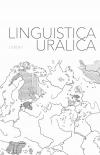Über eine mögliche baltische Herkunft von frühosfi. *lēćća *’Blasebalg’
On the Possible Baltic Origin of the Early Proto-Finnic *lēćća *’bellows’
Author(s): Lembit VabaSubject(s): Language studies, Finno-Ugrian studies
Published by: Teaduste Akadeemia Kirjastus
Keywords: Finnic languages; Baltic languages; historical phonetics; sound substitution; loanwords
Summary/Abstract: There is still no consensus about the origin of the Finnic word family represented by, e.g. Fin lietsa, Est lõõts etc. The alleged Germanic etymology ~ Proto-Germ *blēstra-z (cf. Old Norse blástr m ’Blasen, Schwellung’ etc). presupposes the substitution of Germ *-st- > Finnic -ts-, which would be a unique case thus serving as an insurmountable obstacle to the acceptance of such an etymology. This short study suggests a Baltic etymology based on a supposed verb form, resp. verbal noun stem *plēti̯a-; cf. Lith plė̃sti (plẽčia, plė̃tė) < *plēt-tei-, plėtóti ’ausbreiten, ausspannen, entfalten, erweitern, verbreiten, fortpflanzen’ etc. As expected, the Baltic word-initial consonant cluster *pl- has been compensated by a single consonant l- and *ē > ē (> Fin ie, Est õõ); while the substitution of the Baltic sound sequence ti̯ has probably progressed as follows: Early Proto-Finnic *ćć >> Late Proto-Finnic *ts. As far as we know, the Baltic loanwords hitherto established in the Finnic languages include a single credible case based on a dental + i̯: Baltic *medi̯a- (cf. Lith medis ’Baum, Holz’) > Early Proto-Finnic *meććä >> Late Proto-Finnic *metsä (cf. Fin metsä, Est mets etc. ’Wald’), which makes the above Baltic etymology of the Finnic lietsa- ~ lõõtsa- word family nothing short of a discovery.
Journal: Linguistica Uralica
- Issue Year: LII/2016
- Issue No: 3
- Page Range: 161-167
- Page Count: 7
- Language: German

